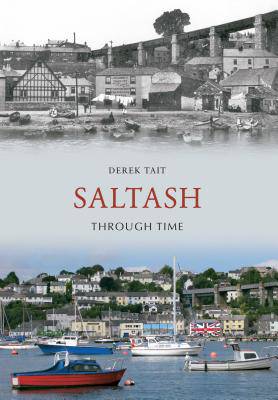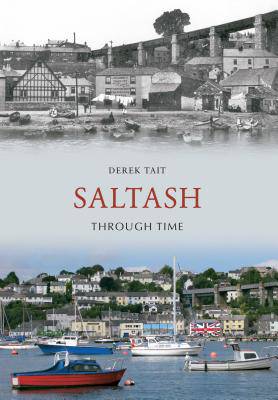
- Afhalen na 1 uur in een winkel met voorraad
- Gratis thuislevering in België vanaf € 30
- Ruim aanbod met 7 miljoen producten
- Afhalen na 1 uur in een winkel met voorraad
- Gratis thuislevering in België vanaf € 30
- Ruim aanbod met 7 miljoen producten
Zoeken
Omschrijving
Saltash has seen many changes over the years. The waterside area beside the River Tamar has been occupied for over a thousand years and was the home to fishermen plying their trade for much of that time. A ferry ran between Plymouth and Saltash for over 600 years before coming to an end when the Tamar Bridge was opened to traffic in 1961. Modern redevelopment also led to the clearance of many older buildings, changing the look of the area forever. A number of industries have also disappeared including quarrying, ship building and fishing. Gone too are the limekilns as well as the gasworks and the brass and iron foundries. The numerous tea gardens, the coal merchants and, of course, the ferry are now just things of the past. A hundred years ago, the water's edge was alive with activity. Fishing boats regularly called into Saltash and many barges took produce up and down the river.
Specificaties
Betrokkenen
- Auteur(s):
- Uitgeverij:
Inhoud
- Aantal bladzijden:
- 96
- Taal:
- Engels
- Reeks:
Eigenschappen
- Productcode (EAN):
- 9781848681897
- Verschijningsdatum:
- 15/11/2010
- Uitvoering:
- Paperback
- Formaat:
- Trade paperback (VS)
- Afmetingen:
- 165 mm x 231 mm
- Gewicht:
- 340 g

Alleen bij Standaard Boekhandel
+ 44 punten op je klantenkaart van Standaard Boekhandel
Beoordelingen
We publiceren alleen reviews die voldoen aan de voorwaarden voor reviews. Bekijk onze voorwaarden voor reviews.











